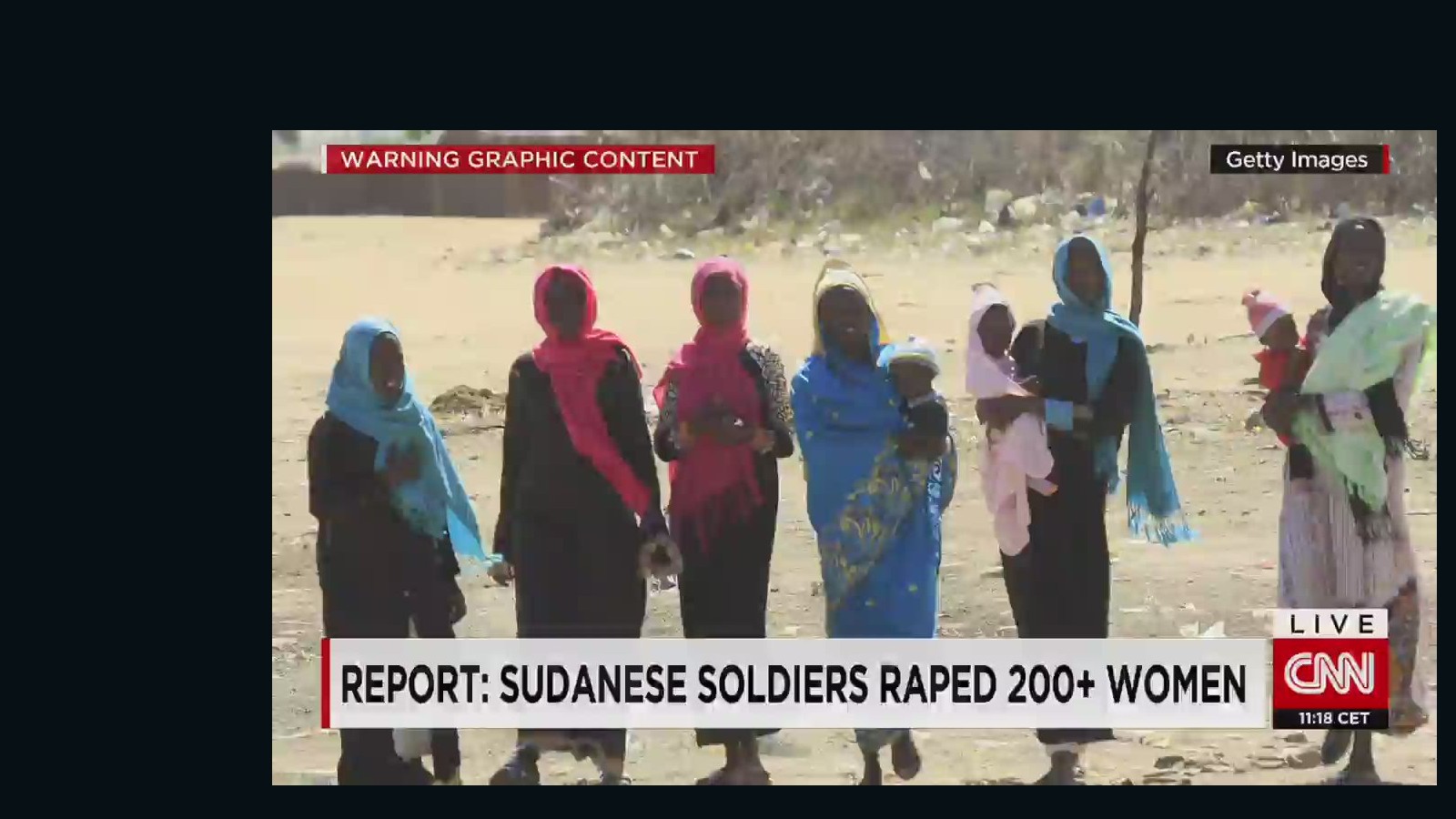
Darfur has a long, dark history filled with horrors.
But these nightmares aren't all in the far past, according to Human Rights Watch.
Citing 130 interviews with locals, the advocacy group said this week that in October, Sudanese soldiers raped more than 200 women and girls over a 36-hour period in the north Darfur town of Tabit.
"Witnesses told Human Rights Watch that during (the) attacks, government soldiers went house-to-house in Tabit, searching houses, looting property, severely beating residents, and raping women and girls," the report stated. "On the two nights, soldiers forced many of the men to outdoor locations on the outskirts of the town, leaving the women and children especially vulnerable."
The advocacy group said that civilians were the only ones affected and that it had "no evidence of any rebel force in the town immediately prior to or during the attacks." The United Nations and African Union have a force in Darfur, but according to Human Rights Watch, the Sudanese government has "prevented (them) from carrying out a credible investigation."
"Immediately after they entered the room they said: 'You killed our man. We are going to show you true hell,' " a woman in her 40s recalled of an attack on her and her three daughters, two of whom were less than 11 years old, Human Rights Watch reported.
"Then they started beating us. They raped my three daughters and me. Some of them were holding the girl down while another one was raping her. They did it one by one."
Yusuf Kurdufani, a Sudanese Foreign Ministry spokesman, dismissed the report as "an attempt to reproduce an issue long closed after the world was convinced about the incredibility and illogicality of the claims of mass rape."
According to the official Sudanese News Agency, Kurdufani said mass rapes "go contrary to the logic of things and also contradict ... the customs and traditions of the local population."
"He argued that by making such allegations, the rebel movements wanted to create an impression that the situation was still unstable in the region," the SUNA report added. "The spokesman reaffirmed that the allegations of mass rape in Tabit is a file that has been closed."
Yet not everyone in the international community buys Sudan's story, at least without a credible outside investigation.
"To this day, the government of Sudan has shamefully denied the UN the ability to properly investigate this incident, despite this (U.N. Security) Council's mandate to do precisely that," said Samantha Power, the U.S. ambassador to the United Nations.
The United Nations itself said two months ago that its team had found no evidence supporting the claims, though the ultimate findings are "inconclusive and require further investigation."
Violence in Darfur -- an arid region in western Sudan -- began raging in the early 2000s, with then-U.N. envoy Tom Eric Vraalsen at one point calling the humanitarian crisis there "one of the worst in the world." The United Nations has estimated about 300,000 people have been killed and another 2.7 million wounded in the unrest.
Sudanese President Omar al-Bashir is charged by the International Criminal Court with multiple counts of genocide, war crimes and crimes against humanity. But al-Bashir hasn't agreed to stand trial, with his information minister at one point dismissing the ICC as a "white man's tribunal."
There have been seemingly positive developments in the region in recent years, like South Sudan declaring independence after a peace agreement and subsequent referendum. In Darfur in 2013, a splinter group from the Justice and Equality Movement -- the largest Darfurian rebel group -- signed a peace deal with the Sudanese government, and countries pledged $3.7 billion to reconstruct and develop the war-torn area.
Yet the violence never really went away.
In December, Under-Secretary-General for U.N. Peacekeeping Operations Herve Ladsous briefed the Security Council about increased fighting, "deadly" internal conflicts and an alarming rise of crime in Darfur.
"This insecurity as well as the persistent restrictions imposed by government forces, armed movements and militia groups continued to challenge the ability of the (UN/AU) mission to implement its mandate, particularly as regards the protection of civilians," Ladsous said.
No comments:
Post a Comment